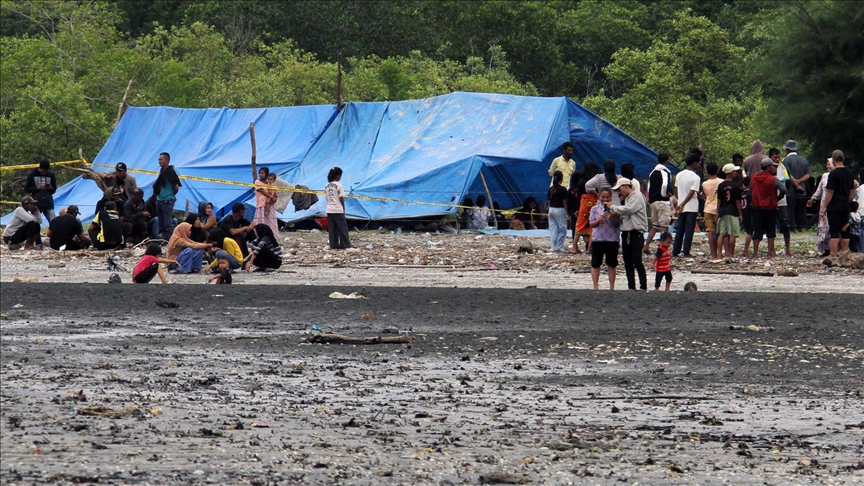International community urged to redouble efforts to assist Rohingya refugees
UN and partners seek over $852M to support Rohingya, Bangladeshi hosts

GENEVA
The UN refugee agency, UNHCR, and other humanitarian partners on Wednesday urged the international community to redouble efforts to protect and assist Rohingya refugees and their host communities.
Bangladesh is generously hosting nearly a million Rohingya refugees, most of whom fled Myanmar seven years ago, according to UNHCR.
The 2024 Joint Response Plan for the Rohingya Humanitarian Crisis has been launched under the leadership of the Bangladeshi authorities.
The funding appeal seeks $852.4 million to reach some 1.35 million people, including Rohingya refugees and host communities.
Six years after being uprooted from Myanmar through a campaign of targeted violence by the military junta, more than 700,000 Rohingya Muslims fled to neighboring Bangladesh, joining thousands of others who had fled earlier episodes of violence.
More than a million of them live in Bangladesh’s Cox Bazar alone, making it the largest refugee settlement in the world.
Masud Bin Momen, Bangladesh's foreign secretary; Mohammad Tofazzel Hossain Miah, the principal secretary of the Bangladesh prime minister; Filippo Grandi, the chief of the UN refugee agency; and Amy Pope, the head of the International Organization for Migration, presented the plan to donors in Geneva.
International solidarity with Bangladesh and refugee protection is needed more than ever as the conflict in Myanmar escalates, according to UNHCR.
The Joint Response Plan brings together 117 partners and Bangladeshi organizations.
It aims to provide food, shelter, healthcare, access to drinkable water, protection services, education, livelihood opportunities, and skills development to some 1 million Rohingya refugees in Cox's Bazar and on the island of Bhasan Char and 346,000 from host communities.
Some 95% of Rohingya households in Bangladesh are vulnerable and remain dependent on humanitarian assistance.
Sustained assistance is critically and urgently needed, particularly by women and children, who make up more than 75% of the targeted refugee population and face heightened risks of abuse, exploitation, and gender-based violence.
More than half of the refugees in the camps are under 18, languishing amid limited opportunities for education, skills-building, and livelihoods.
The Bangladesh government, local communities, and aid agencies need sustained international support to respond to increasing needs as this humanitarian crisis remains primarily out of the global spotlight.








